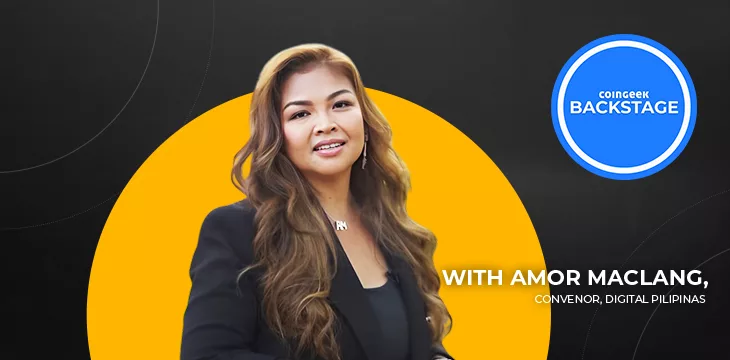|
Getting your Trinity Audio player ready...
|
Digital Pilipinas Festival, held from November 20 to 24, 2023, at the SMX Aura in Bonifacio Global City, Taguig, focused on the theme “World Meet ASEAN in a Digital Pilipinas.” The event, convened by Amor Maclang, served as a platform to showcase the Philippines as a digital hub, connecting ASEAN with the world.
In a CoinGeek Backstage interview with Maclang, she is keen to point out the global importance of ASEAN, stating, “40% of all global GDP is going to be in ASEAN in seven years.” Despite this, many nations lack a comprehensive strategy for the Indo-Pacific or ASEAN.
With its youthful population, rapid adoption of new technologies, and mobile-first approach, the Philippines serves as a digital bridgeway for the region. “If you cannot visit all ten countries in ASEAN, the Philippines is a favored digital bridgeway,” Maclang noted.
The festival encompassed simultaneous discussions on various digital sectors, including fintech, insurtech, proptech, cybersecurity, and e-government. The goal was to promote the digitalization of SMEs and celebrate the inaugural Invest Philippines Week, attracting over 30 countries.
Maclang’s vision of a united and digitally advanced ASEAN highlights the importance of collaborative efforts in shaping the region’s future. Staying aligned with the vision, Digital Pilipinas launched the International Digital Economies ASEAN with the theme “Where one goes, we all go.” The initiative aims to strengthen ties between regions and promote collaboration.
A notable highlight of the festival was the partnership with nChain, a global blockchain technology company. Maclang revealed, “I am thrilled to let you know that nChain is actually going to be our blockchain technology partner.” The plan is to integrate blockchain across various industries and processes to ensure immutability and integrity.
Paving way for technological advancements and global collaborations
Meanwhile, Dr. Alexander “Sasha” Titov, the Director for International Partnerships at Digital Pilipinas, shared insights into the festival’s international partnerships and the significant role of blockchain technology in shaping the country’s digital landscape.
Dr. Titov, responsible for fostering international collaborations and business development, highlighted Digital Pilipinas’ mission to bring cutting-edge technologies to the Philippines. As he explained, “I’m in charge of international partnerships and business development, and to bring the best technologies around the world to the Philippines.” Additionally, as a co-founder of Astrolabe, he pointed out the company’s role in facilitating investments in the tech sector and other industries.
The festival, characterized by practical practitioner steps, witnessed several significant partnerships. Dr. Titov mentioned agreements with organizations like the International Digital Economies Association, U.K. London Tech Week, Tech Filipino Advocate, and G100 Association of Global Women Leaders. These collaborations aim to boost the country’s tech ecosystem and attract international businesses.
Another notable highlight was the signing of agreements related to the halal economy, signaling the expansion beyond traditional food products.
“We consider halal economy not only in regard to food products… it’s related to finance because our core, which we started last year, is fintech,” Dr. Titov said.
When discussing the digitalization of the Philippines, Dr. Titov highlighted Digital Pilipinas’ comprehensive approach across critical industries such as agriculture, education, SMEs, e-commerce, and cybersecurity. Collaborating with various partners and international expertise ensures that no aspect is overlooked.
Regarding the participation of nChain, Dr. Titov expressed enthusiasm, stating, “nChain is an incredible partner for Digital Pilipinas.” He emphasized the versatility of blockchain technologies, addressing issues across different industries. He elaborated, “Blockchain can help to solve the issues and problems, even in halal, disability, data registration, transparency, and health.”
Watch: Digital identity for digital Philippines—Here are some use cases

 02-26-2026
02-26-2026 




